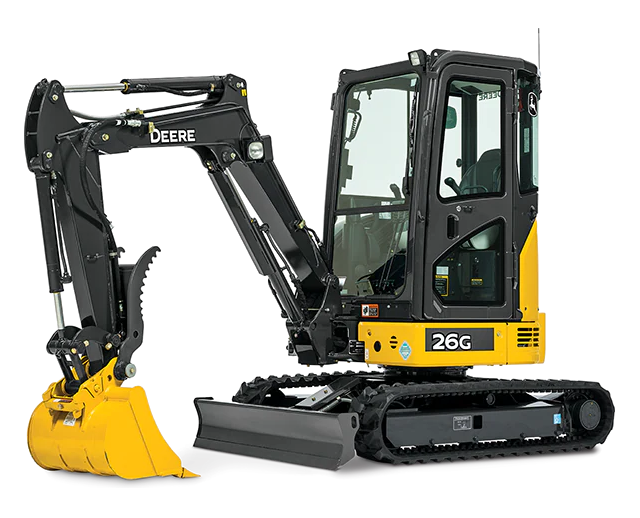Forklift Rental: Heavy Lifting Equipment for Warehousing and Much more
Forklift Rental: Heavy Lifting Equipment for Warehousing and Much more
Blog Article
Optimize Your Budget by Comprehending the Costs Related To Construction Equipment Leasings
Recognizing the complete extent of prices connected with construction devices rentals is essential for maximizing your budget plan. While the preliminary rental cost may seem uncomplicated, various additional expenses-- such as transport, gas additional charges, and maintenance-- can quickly build up, affecting your economic preparation. Moreover, knowing different charges and the intricacies of rental arrangements can aid prevent unexpected economic burdens. What techniques can be employed to properly take care of these prices and make certain a more reliable rental experience?
Introduction of Rental Costs
When considering construction devices leasings, understanding the connected costs is vital for efficient budgeting and task preparation. Rental costs can differ dramatically based on several factors, including devices kind, duration of rental, and location. The first rental charge frequently reflects the tools's market demand and its associated operational capabilities, affecting the total cost.
In addition to the base rental rate, secondary expenses might occur, such as transport fees, fuel additional charges, and upkeep charges. It is necessary to represent these added expenses to accurately evaluate the overall price of renting devices. Moreover, the rental period can affect prices; longer services might qualify for discounted rates, while short-term rentals might incur greater everyday fees.

Failure of Rental Prices
A detailed understanding of rental rates is vital for professionals and job managers aiming to maximize their spending plans. Rental rates for construction tools typically consist of numerous elements, including base prices, time-based fees, and usage costs.
Base prices are the core charges linked with the service of the devices, often determined by the type and dimension of the machinery. These prices can vary significantly, affected by variables such as devices need, schedule, and regional market trends. Time-based fees, which may be daily, weekly, or monthly, serve to suit various job timelines and rental periods.
In addition, rental rates might include use fees, which apply when tools is used beyond a defined threshold, making sure that the rental business can represent deterioration. Seasonal need variations can also influence rental rates, with peak building seasons usually commanding greater costs.
Additionally, recognizing the rental firm's policies pertaining to maintenance and insurance policy can offer more insight into the total cost structure. By assessing these components, specialists can make informed choices, guaranteeing the option of rental equipment lines up with both job needs and budget plan constraints.
Additional Fees to Consider
Comprehending the complexities of additional charges is important for specialists to handle their general leasing expenses efficiently. Beyond the basic rental rates, various extra fees can significantly impact the total price of tools service. These charges often consist of distribution and pick-up charges, which can vary based upon distance and logistics associated with carrying the equipment to and from the job website.
Moreover, some rental firms may impose gas surcharges if the equipment is returned with much less gas than when rented out. It is additionally necessary to be mindful of prospective cleaning costs, particularly for specialized tools that needs comprehensive maintenance after usage.

Extensively evaluating the rental arrangement and clearing up these additional charges upfront can assist professionals make certain and avoid unexpected prices that budget plans stay intact throughout the project lifecycle.
Upkeep and Fixing Expenditures
Normal maintenance and repair work expenses are commonly overlooked aspects that can considerably affect the total expense of construction devices services. When renting devices, it is critical to consider not just the rental charges yet also the prospective expenses connected with keeping the equipment in ideal operating problem.
Many rental companies include fundamental upkeep as part of the rental contract; nevertheless, extra unanticipated breakdowns or comprehensive repair work can cause added expenses. It's important to evaluate the rental agreement meticulously to recognize what upkeep solutions are covered and what duties fall on the renter.
Furthermore, equipment that is not well-maintained can result in ineffectiveness at work site, potentially enhancing and creating hold-ups job expenses. To mitigate these threats, it is recommended to carry out regular assessments and maintain open interaction with the rental copyright concerning any issues that arise throughout use.
Insurance and Obligation Expenses
Insurance policy and responsibility expenses are important elements that can considerably impact the total expense of construction tools leasings (equipment rental company). These prices guarantee that both the rental company and the customer are secured from potential economic losses occurring from crashes, damage, or burglary during the rental duration

Furthermore, customers should know any deductibles or exclusions in the insurance coverage, as these can influence potential out-of-pocket costs. Recognizing the conditions of any type of insurance policy coverage is crucial to stay clear of unexpected expenses. Eventually, budgeting for insurance policy and responsibility costs can aid guarantee a smoother rental experience and safeguard against financial dangers linked with construction jobs.
Verdict
In conclusion, an extensive understanding of the costs linked with construction equipment services is necessary for efficient spending plan administration. Ultimately, notified decision-making relating to tools leasings contributes to the overall success of building undertakings.
Rental expenses can vary considerably based on numerous aspects, including tools kind, period of redirected here rental, and area (boom lift rental). The rental duration can impact rates; longer rentals may certify for reduced prices, while short-term leasings might sustain higher daily fees
By conducting detailed research study and involving with respectable rental companies, specialists can properly navigate the complexities of rental rates, inevitably maximizing their economic sources.
Beyond the conventional rental rates, numerous auxiliary charges can substantially impact the total price of equipment leasing. Rental firms frequently offer liability insurance coverage that covers injuries to 3rd parties or damage to residential or commercial property, while devices damages insurance policy can cover the cost of fixings or replacement if the leased devices is harmed.
Report this page